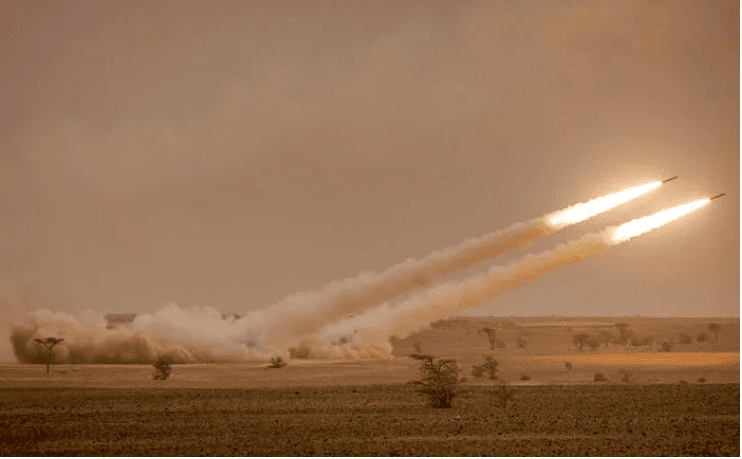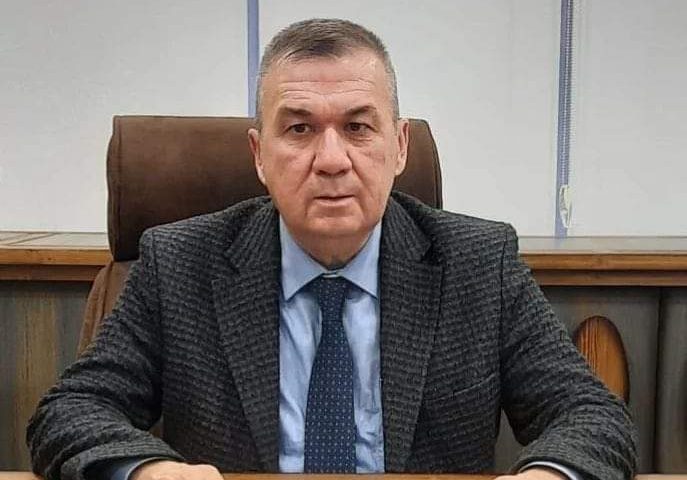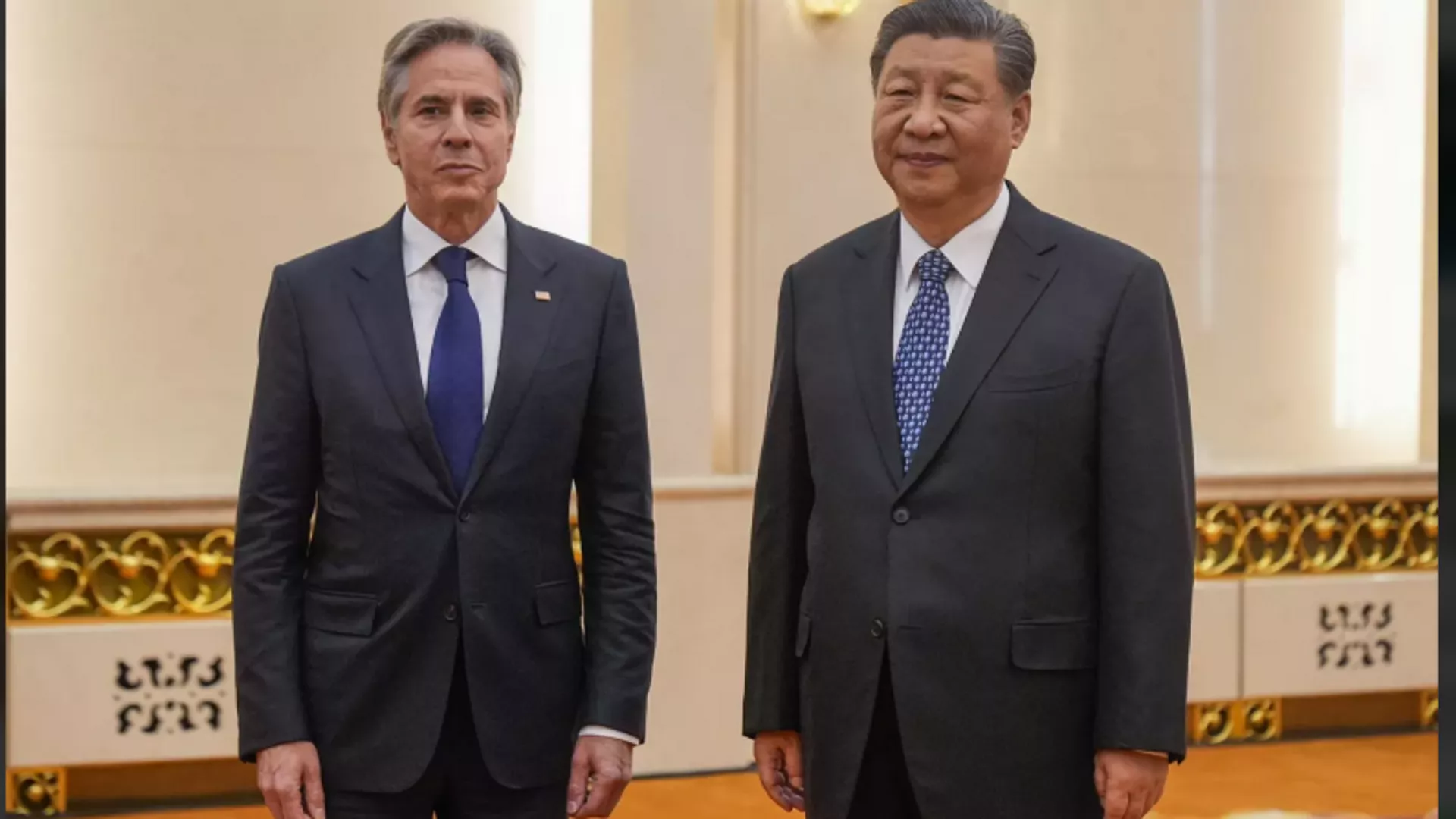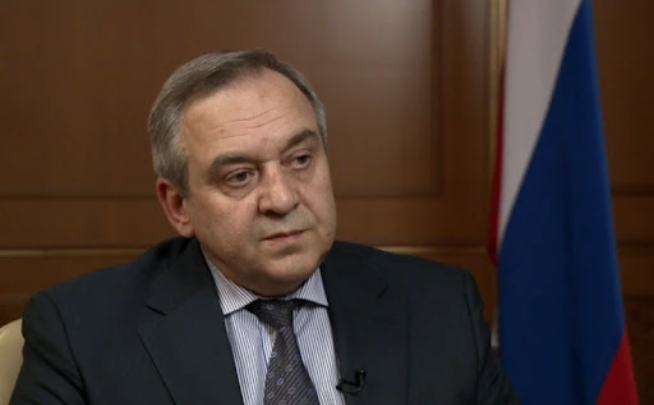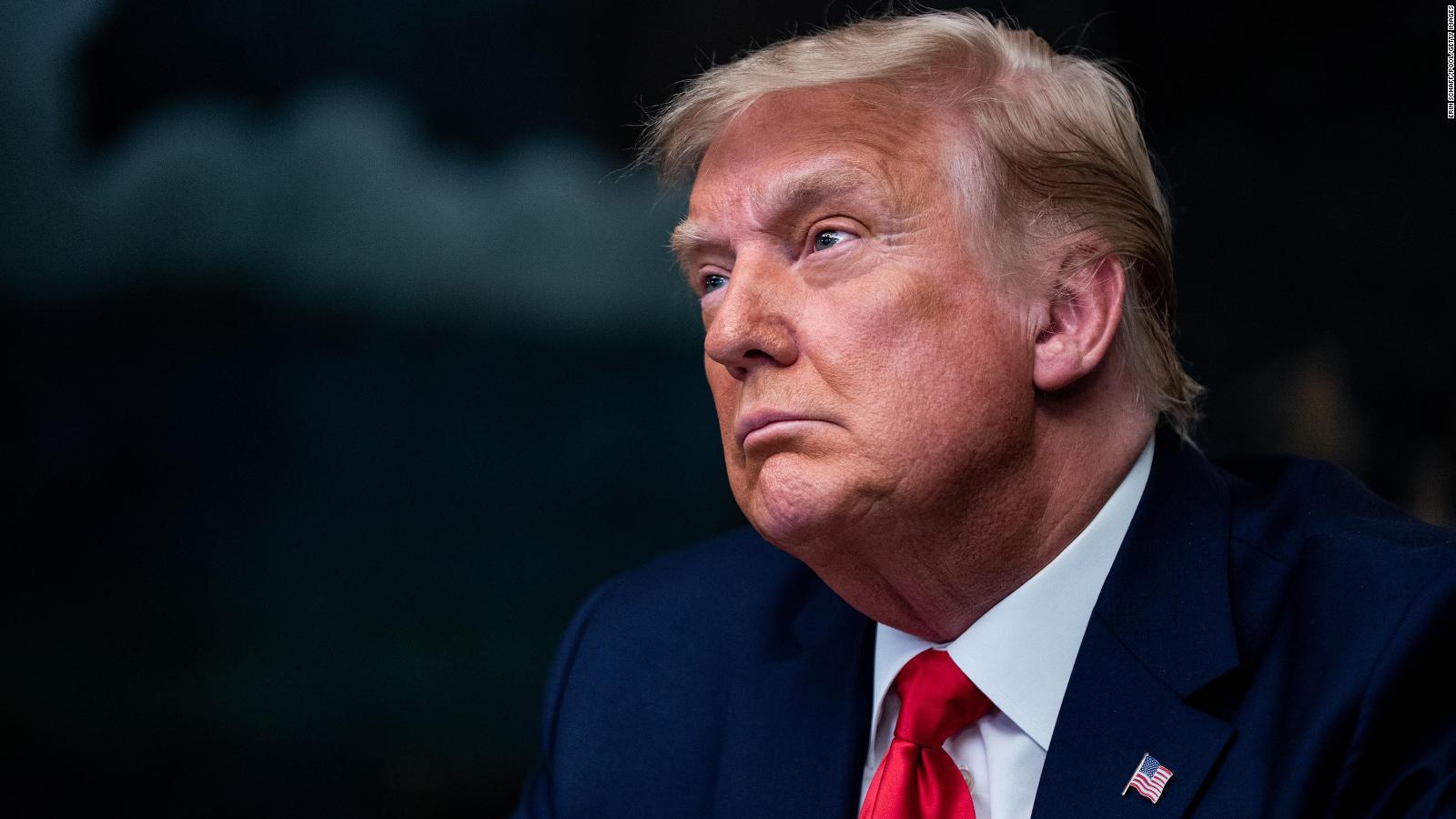The news from Kiev that Ukraine continues to make extensive progress in its eastern and southern regions is a reason to widen the scope of the war and raise the scenario of ‘uncontrolled conflict’ that Russian officials have been warning about in recent days.
Over the last few days, Moscow has sent several messages referring to its preference not to expand the conflict and only confirming the ‘new reality’ imposed by the decision to annex Ukrainian regions.
This was evidenced by President Vladimir Putin’s references to Russia’s desire to ensure the stability of energy supplies to Europe, as well as statements by the Russian National Security Council that the ‘security guarantees document’ that Moscow had requested from the West before the start of the war was still on the table.
Nonetheless, the Kremlin has limited options, especially as Western reports about intensifying military aid to Kiev have increased, while Ukraine apparently continues to expand the territory reclaimed by Putin in the recently annexed regions.
- Harrison Ford Is Selected By Marvel To Replace the Late William Hurt In The MCU
- Shocking words from the exiled opposition leader of Belarus — Putin does not trust Lukashenko!
It is noteworthy that, except in rare instances, such as announcing the withdrawal of troops from the strategic town of Lyman to occupy ‘more advantageous positions’, Russian military reports do not provide details of Ukrainian advances and refrain from acknowledging the pace of Ukraine’s advance.
Instead, military statements from Russia continue to mention the targeting of civilian areas in Ukraine.
At the same time, however, developments on the ground suggest that Moscow is preparing a large-scale reverse operation, including the announcement of the deployment of volunteer troops in the Donbas region and reports of heavy bombers from Belarus entering the front line before Moscow launched massive and intensive attacks targeting almost all Ukrainian cities.
Finally, the appointment of General Sergey Surovikin to command operations in Ukraine is a strong indication of ongoing preparations for the new phase of the conflict.
General Surovikin’s appointment came as a relief among the ‘hawkish’ camp, which has called for accelerating the pace of the ‘decisive war’ and using all possible military means to achieve it, including the possibility of using tactical nuclear weapons.
One of them, Chechen leader Ramazan Kadyrov, has expressed confidence that Surovikin’s leadership in the war will bring decisive results.
Against this background, Ukraine’s Provisional Ministry for the Reintegration of Occupied Territories reported that the Ukrainian army liberated more than 600 territories from Russian occupation last month, including 75 in the highly strategic Kherson region.
In Kharkiv region, where Ukrainian forces advanced deeper into Russian lines last month, some 502 settlements were liberated, the ministry said in a statement late yesterday.
“The liberated Ukrainian territories have increased significantly,” the statement said, adding that 43 settlements were liberated in the Donetsk region and 7 in the Luhansk region.
Adding to the seriousness of these reports is the fact that the security situation along Russia’s border with Ukraine has deteriorated dramatically in recent weeks.
Vyacheslav Gladkov, Governor of Russia’s Belgorod Region bordering Ukraine, reported that train operations near the town of Novyi Oskol were suspended earlier today after missile fragments fell near the rail line.
The governor said on Telegram that anti-aircraft missile systems shot down the missiles near Novyi Oskol, which is located 90 kilometers north of the Ukrainian border and has a population of about 18,000.
“Power lines were damaged. Trains were temporarily stopped,” Gladkov said, adding that there were no casualties.
In addition to Kherson’s strategic importance as the main land link with Crimea, sustained attacks on the Donetsk and Kherson regions could be the most dangerous situation for Russia, given Putin’s promise to defend the two regions that have joined Russia ‘forever’.
This means that the expansion of Ukrainian forces’ control over their territory would threaten Moscow’s forces on the peninsula and put it under siege. It also threatens to halt Russian military supplies to the region.
In the face of this reality, the prospects of military escalation and efforts to expand the battlefield seem to be the only way to halt Ukraine’s advance and organize large-scale rollbacks.
According to Kadyrov, whose forces have played a key role in the conflict in southern Ukraine, the ‘decisive moment’ is approaching, in addition to the arrangements Moscow is working on, including the evacuation of residents in preparation for the start of the big war in Kherson.
A few days ago, Moscow announced the start of the transfer of children, their companions and elderly groups to resorts deep inside Russia.
This was followed by a call by separatist authorities in the region for all residents to move to Russian areas to ‘facilitate the tasks of the forces’.
But expanding the battlefield faces two possible developments.
The first is the increasing involvement of Western parties, especially NATO, in the conflict, and the second is the official participation of Belarus in military operations.
The inability to halt Ukraine’s advance with conventional weapons increases the risk that the Kremlin will respond to calls from ‘hawks’ in the military and diplomatic establishment to resolve the war using tactical nuclear weapons.
European Union (EU) High Representative for Foreign Policy and Security Josep Borrell yesterday warned Moscow that if Putin uses nuclear weapons against Ukraine, there will be a strong military response with the destruction of the Russian military, sparking debate on the issue.
Speaking at the opening of the EU Diplomatic Academy in Belgium, Borrell said;
“Russian President Vladimir Putin says he is not bluffing. Putin cannot afford to bluff. Those who support Ukraine, the EU, the EU countries, the US and NATO are not bluffing either. Any nuclear strike against Ukraine will have a response. It will not be a nuclear response, but it will be a strong military response in which the Russian military will be destroyed. Putin should not be bluffing.”
As usual, Moscow did not rush to comment on Borrell’s threat.
EU ambassadors today unanimously approved a military training mission for about 15,000 members of the Ukrainian armed forces, diplomats said, as quoted by DPA.
Borrell floated the idea of a new initiative to train Ukrainian soldiers in August.
This mission could include training in areas such as logistics and protection against nuclear, biological and chemical weapons, DPA reported.
The decision, taken today by the ambassadors of the 27 US member states, must be formally endorsed by EU diplomatic heads in Luxembourg on Monday.
Belarus, which has become the Kremlin’s closest and only ally in this conflict, seems to be preparing for the next phase of the war.
Belarusian Foreign Minister Vladimir Makei announced the declaration of an anti-terrorist operational regime in the country, saying that the armed forces and special services are ready to respond to any provocations from neighboring countries.
In a statement to Izvestia newspaper, Makei said;
“Our head of state held a series of meetings with the security forces and a counter-terrorist operation regime was declared. We have information that some neighboring countries are planning provocations, including the seizure of certain regions of Belarus.”
Belarusian President Alexander Lukashenko claimed that Poland, Lithuania and Ukraine had begun training militants among radical Belarusians to organize sabotage, terrorist attacks and military insurgency.
Ivan Tertel, head of the Belarusian State Security Committee (KGB), said: “The West is trying to open a ‘second front’ to divert Russia’s resources to solving occasional tasks. We expect the situation in the region to deteriorate.”
Emphasizing that one of the tools that their opponents will use under these circumstances is the opposition, Tertel said: “We know very well these people who have fled abroad, who is holding them and for what purpose. Therefore, now everything is focused on preparing for intervention in Belarus. A number of illegal armed groups have been formed on the territory of Ukraine with the participation of those who fled the country for various reasons,” Tertel said.

